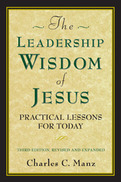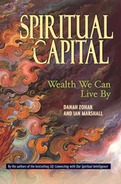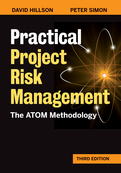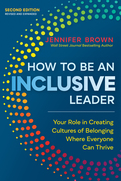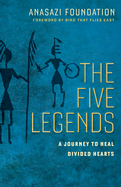New edition offers profound lessons in leadership for readers of any religious background
- New edition of the bestselling classic (over 75,000 copies sold and translated into eight languages)
- Offers profound lessons in leadership for readers of any religious background
- Updated throughout, with a new self-assessment chapter
The name Jesus conjures up all kinds of powerful images and emotions. But regardless of religious belief, most people would agree that Jesus was a powerful ethical and spiritual figure and one of the most influential and inspiring people who ever lived. It is in this spirit that Charles Manz-not a theologian but rather a highly regarded leadership professor and consultant-approaches the teachings of Jesus.
The Leadership Wisdom of Jesus is for anyone who wants to become a wise and highly effective leader. It outlines a uniquely constructive and compassionate approach to leadership based on positive spiritual principles contained in the teachings of Jesus. Manz doesn't look to these teachings to support preconceived theories of how to lead but explores the New Testament with an open mind to see what insights it reveals for today's work world. What he finds are powerful lessons that will inspire you to maintain integrity, live on a higher plane, and ultimately achieve your per- sonal and professional goals, no matter what your religious background.
This new edition is updated throughout and includes several new examples and a self- assessment chapter designed to encourage self-examination and personal reflection. Remarkably contemporary and welcoming to all readers, this book will challenge you to evaluate your own leadership style and to consider time-tested spiritual wisdom that can make you more enlightened and more effective.
- New edition of the bestselling classic (over 75,000 copies sold and translated into eight languages)
- Offers profound lessons in leadership for readers of any religious background
- Updated throughout, with a new self-assessment chapter
The name Jesus conjures up all kinds of powerful images and emotions. But regardless of religious belief, most people would agree that Jesus was a powerful ethical and spiritual figure and one of the most influential and inspiring people who ever lived. It is in this spirit that Charles Manznot a theologian but rather a highly regarded leadership professor and consultantapproaches the teachings of Jesus.
The Leadership Wisdom of Jesus is for anyone who wants to become a wise and highly effective leader. It outlines a uniquely constructive and compassionate approach to leadership based on positive spiritual principles contained in the teachings of Jesus. Manz doesnt look to these teachings to support preconceived theories of how to lead but explores the New Testament with an open mind to see what insights it reveals for todays work world. What he finds are powerful lessons that will inspire you to maintain integrity, live on a higher plane, and ultimately achieve your per- sonal and professional goals, no matter what your religious background.
This new edition is updated throughout and includes several new examples and a self- assessment chapter designed to encourage self-examination and personal reflection. Remarkably contemporary and welcoming to all readers, this book will challenge you to evaluate your own leadership style and to consider time-tested spiritual wisdom that can make you more enlightened and more effective.
2004
-
Provides a radical new philosophy for business that redefines its meaning and purpose and offers hope for a more sustainable future
-
Takes the concept of spiritual intelligence, pioneered in the authors' bestselling SQ: Connecting with Our Spiritual Intelligence, and applies it to the business world
Risk isn't just about threat; it's also about opportunity. You have to be ready to take advantage of the most unexpected events—good or bad—with any project you are managing. But how does this work in practice? The Active Threat and Opportunity Management (ATOM) methodology offers a simple, scalable risk process that applies to all projects in all industries and business sectors. For each process step, the authors offer practical advice, hints, and tips on how to get the most out of the risk management process.
Risk management really can work in practice. This Project Management Institute award-winning methodology is already used by top corporations. Whether you are someone with no prior knowledge of risk management or someone who simply needs guidance on how to apply risk management successfully, this book will help you tackle the ups and downs of this unpredictable world.
• Explores how even small changes in the way we talk with one another can produce extraordinarily positive outcomes
• Describes how to get maximum results from four types of conversations we use every day
• Research-based and practical, with sample dialogues and personal stories that show how to put the four conversations into practice
Talk is powerful. Engaging in the right conversation at the right time is key to both personal and organizational success. And it isn’t just ‘difficult’ conversations that matter. The Four Conversations clearly demonstrates it is the everyday dialogue we have with one another that is critical.
Armed with a solid body of research and their own first-hand observations, Jeffrey and Laurie Ford identify four types of conversations that every one of us must use to get things done: initiative conversations to introduce something new; understanding conversations to help people relate to new ideas or processes; performance conversations to request specific actions and results; and closure conversations to complete work and give people a sense of accomplishment . They identify the specific elements that make each of these conversations successful and show how they can be put together in different ways to achieve different objectives.
The Four Conversations demonstrates how to use the right conversation at the right time—planning and starting each one well, and finishing every conversation effectively—to produce the results we want and the improved productivity our organizations need. And through dozens of personal stories and sample dialogues, the authors illustrate how real people in real situations have used the four conversations, either alone or in combination, to more effectively combat common workplace problems and lay the foundations for enduring success: stronger relationships, better buy-in, and a greater feeling of personal and professional achievement for everyone.
The need for inclusive leadership has never been more urgent. In the United States, the wealth gap is the greatest it has ever been, with women, people of color, and other marginalized communities being the most impacted by economic and societal inequities. In the workplace, representation is still sorely lacking across every industry. Pay disparities, low wages, and lack of benefits continue to characterize many jobs in the nation's labor force. These realities have an impact on generations, communities, and our society overall. To build a more equitable future, leaders must grasp the urgency of their role and responsibility in the change effort.
In this updated and greatly expanded second edition of her bestselling book, Jennifer Brown takes a deeper dive into what it takes to be an inclusive leader and examines the challenges and mindsets that continue to hold many leaders back. Combining nearly two decades of professional DEI expertise with personal experience and reflection, she tackles complex topics such as identity, privilege, and systemic inequities. Following her widely acclaimed Inclusive Leader Continuum, Brown makes the journey to becoming an inclusive leader more informed and actionable by offering new structure and content throughout the new edition of the book, including new insights and stories, detailed strategies and tools, and discussion guides to spark learning at the individual and organizational levels.
Whether you are already a fan of the first edition of How to Be an Inclusive Leader or are just embarking on your journey to become a more inclusive leader, this book will meet you where you are and equip you to take action and step into your role in the change effort.
2019
The Five Legends tells the story of two estranged brothers, leaders of their people, who find themselves on an unexpected journey. Struggling against each other, they stumble and fall into a great and terrible canyon. Trapped, the two brothers are rescued by an old man—“the last of a people”—who offers to guide them out of the canyon if they agree to learn the five legends of peace. The brothers agree and begin a journey that may not only save themselves, but also their people.
The brothers learn that to heal any conflict we must first look within ourselves. As this fable beautifully puts it, “War does not begin or end with armies and leaders. In truth, war begins and ends within each of us—within our hearts. When we choose to war with others, we turn our hearts away from them and blind ourselves to their light. …To have a heart at war is to invite war into your life.” The path to peace begins when we stop thinking about “me” and start thinking about “WE.”
This poetic and moving allegory is written for all ages. Its message is both timeless and desperately needed for our own time


